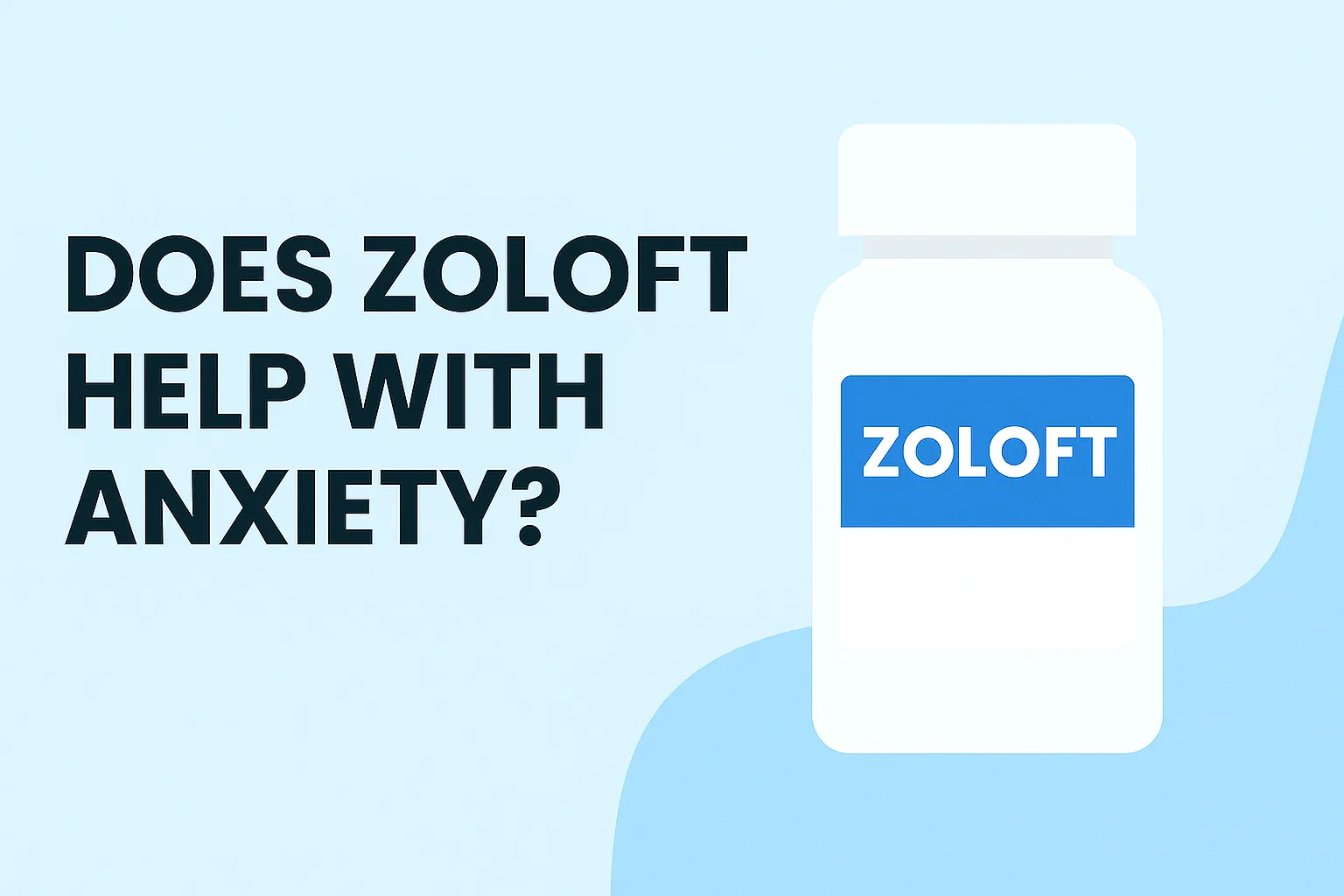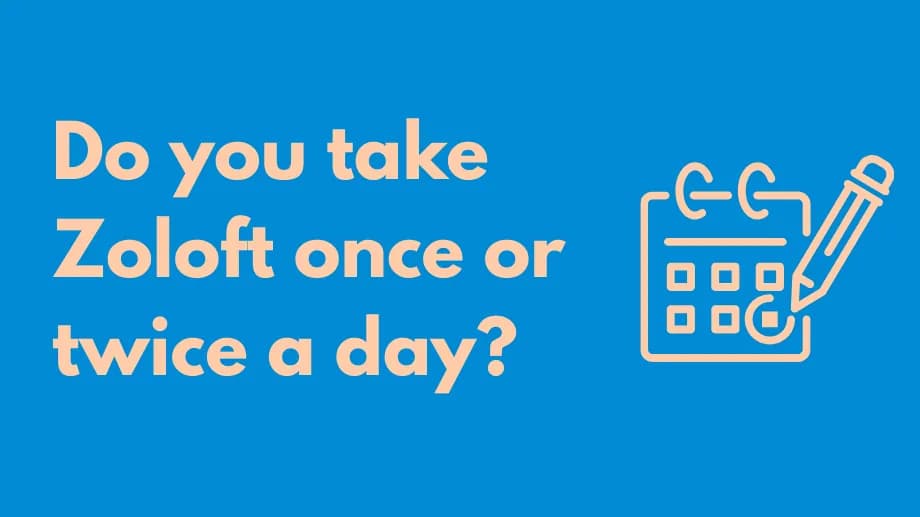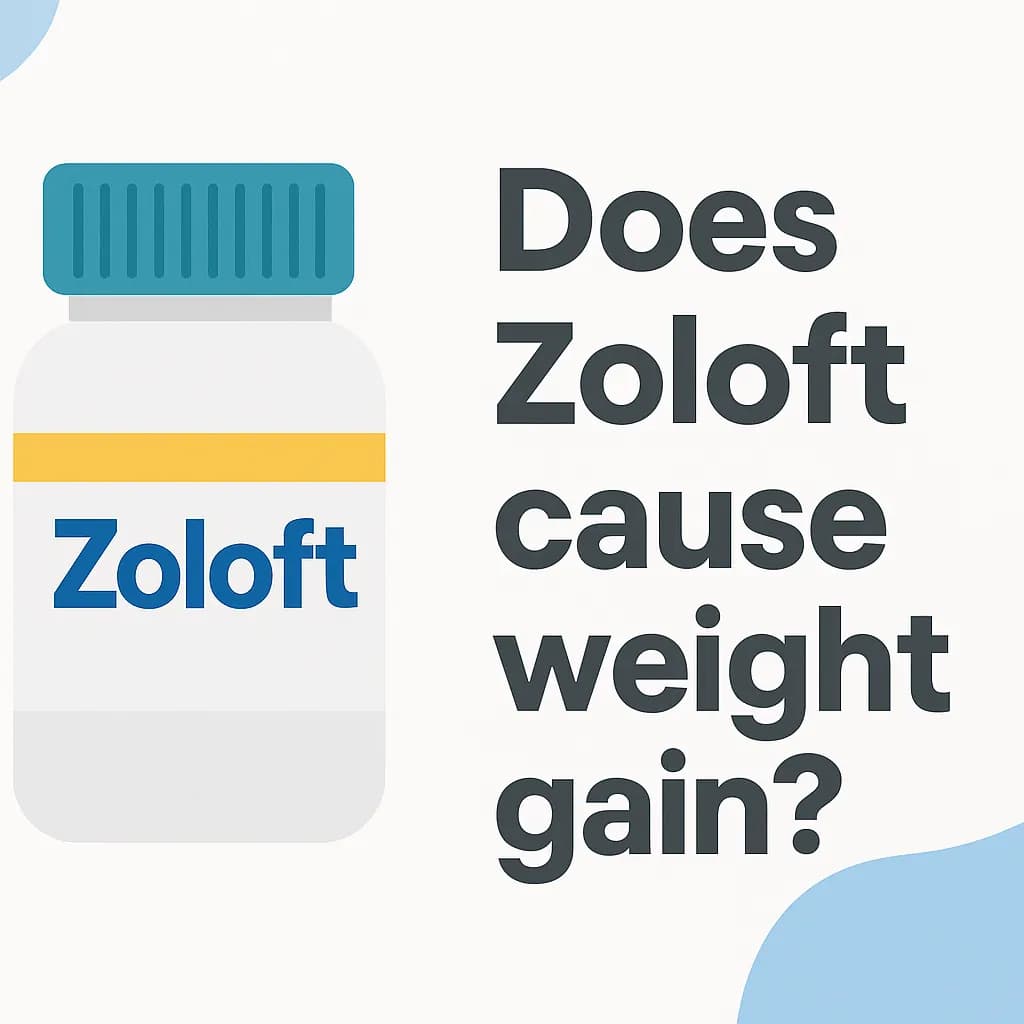Does Zoloft help with anxiety?

If feelings of anxiety constantly interfere with your daily life, it is important to talk to your healthcare provider. If they think you have an anxiety disorder, there are many treatment options. This could include a combination of psychotherapy (talk therapy), lifestyle changes, and prescription medications.
One of the medications that may be part of your treatment plan is Zoloft (sertraline). It belongs to a group of antidepressant medications called selective serotonin reuptake inhibitors, or SSRIs. SSRIs help improve mood by blocking the reabsorption of the neurotransmitter serotonin. Zoloft is FDA-approved to treat major depressive disorder (MDD), premenstrual dysphoric disorder (PMDD), as well as a range of anxiety disorders, including panic disorder, obsessive-compulsive disorder (OCD), social anxiety disorder (SAD), and post-traumatic stress disorder (PTSD). It is also sometimes used off-label to treat generalized anxiety disorder.
While Zoloft does not cure anxiety, it can help to improve mood and reduce your symptoms of anxiety. Some of its benefits include that it is not addictive, it is well tolerated, and it has a lower risk of a fatal overdose compared to medications like benzodiazepines.
Zoloft does take time to start working. While you may see some improvements in your anxiety symptoms within 2 weeks of starting Zoloft, it can take up to 2 months before you see its full benefits. If you do not see any improvement in the first 2 weeks, let your healthcare provider know. You may need a dose adjustment or a different medication. Do not change your dose or stop taking Zoloft without talking to your provider.
How does Zoloft work?
The active ingredient in Zoloft is sertraline hydrochloride. It is a brand-name SSRI antidepressant that was approved by the U.S. Food and Drug Administration (FDA) over 30 years ago. It works by blocking the reabsorption (reuptake) of serotonin in your brain and therefore increasing its activity. Serotonin is an important neurotransmitter that is thought to play a role in mood, sleep, and anxiety.
What are the side effects of Zoloft?
The most common side effects of Zoloft include:
- Nausea
- Diarrhea
- Trouble sleeping
- Dry mouth
- Indigestion
- Tiredness or drowsiness
Other less serious potential side effects include:
- Irregular heartbeat
- Loss of appetite
- Changes in vision
- Tremor
- Sexual problems
- Sweating
Rarely, Zoloft can cause more serious side effects such as:
- Serious allergic reactions
- Worsening depression or suicidal thoughts
- Serotonin syndrome
- Increased risk of bleeding
- Glaucoma
- Life-threatening abnormal heart rhythm
- Low blood sodium levels
In children and adolescents treated with Zoloft, the side effects were similar to those seen in adults. Additional side effects may include:
Shop Medications
- Increased muscle movement or agitation
- Nose bleeds
- Urinary incontinence
- Aggression
- Slowed growth rate
- Weight gain or weight loss
These are not all of the possible side effects. Contact your healthcare provider for medical advice. You can report side effects to the FDA at www.fda.gov/medwatch or call 1-800-FDA-1088.
Are there drug interactions with Zoloft?
Ask your healthcare provider about drug interactions, especially if you take:
- Other SSRIs such as Celexa and Prozac
- SNRIs such as Cymbalta and Effexor
- MAOIs
- Tricyclic antidepressants
- Triptans for migraines
- Opioids such as fentanyl and tramadol
- Tryptophan
- St. John’s Wort
- Amphetamines
- Lithium
- Buspirone
- NSAIDs such as ibuprofen and naproxen
- Aspirin
- Blood thinners like warfarin and clopidogrel
- QT-prolonging drugs such as amiodarone and pimozide
- Seizure medications such as carbamazepine and valproic acid
- Drugs that cause drowsiness like alcohol, marijuana, antihistamines, sleep aids, and muscle relaxants
- Disulfiram (Antabuse) – avoid Zoloft oral solution
Who should not take Zoloft?
- If you take or recently took an MAOI
- If you take Orap (pimozide)
- If you are allergic to sertraline or its ingredients
- If you take disulfiram and use the oral solution
What does your healthcare provider need to know before you start Zoloft?
- Liver, heart, or kidney problems
- History of seizures or convulsions
- Bipolar disorder or mania
- Low blood sodium levels
- History of stroke
- High blood pressure
- History of bleeding problems
- If you are pregnant or plan to become pregnant
- If you are breastfeeding
What happens if you take too much Zoloft?
It is unlikely to be fatal, but a Zoloft overdose can cause unpleasant or dangerous symptoms. Seek medical attention right away if you experience symptoms such as:
- Nausea
- Dizziness
- Vomiting
- High blood pressure
- Irregular heartbeat
- Increased or slow heart rate
- Coma
Related Medications
- Prozac (fluoxetine)
- Paxil (paroxetine)
- Celexa (citalopram)
- Pristiq (desvenlafaxine)
- Effexor XR (venlafaxine ER)
- Lexapro (escitalopram)
Sources
- Zoloft (sertraline hydrochloride). U.S. Food and Drug Administration. Accessed July 11, 2024.
- Sertraline (Rx). Medscape. Accessed July 11, 2024.
- Singh HK, Saadabadi A. Sertraline. StatPearls. Accessed July 11, 2024.
- Sertraline (Zoloft). National Alliance on Mental Illness. Accessed July 11, 2024.
- Lewis G, et al. Lancet Psychiatry. 2019;6(11):903-914. Accessed July 11, 2024.








